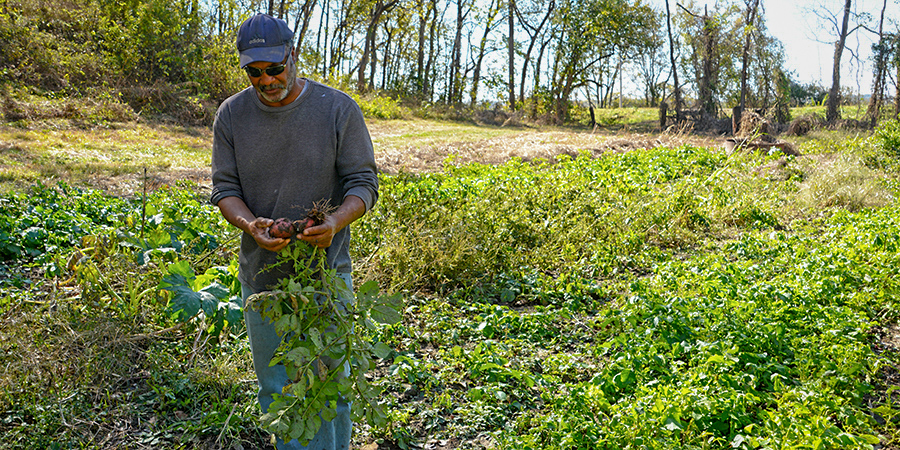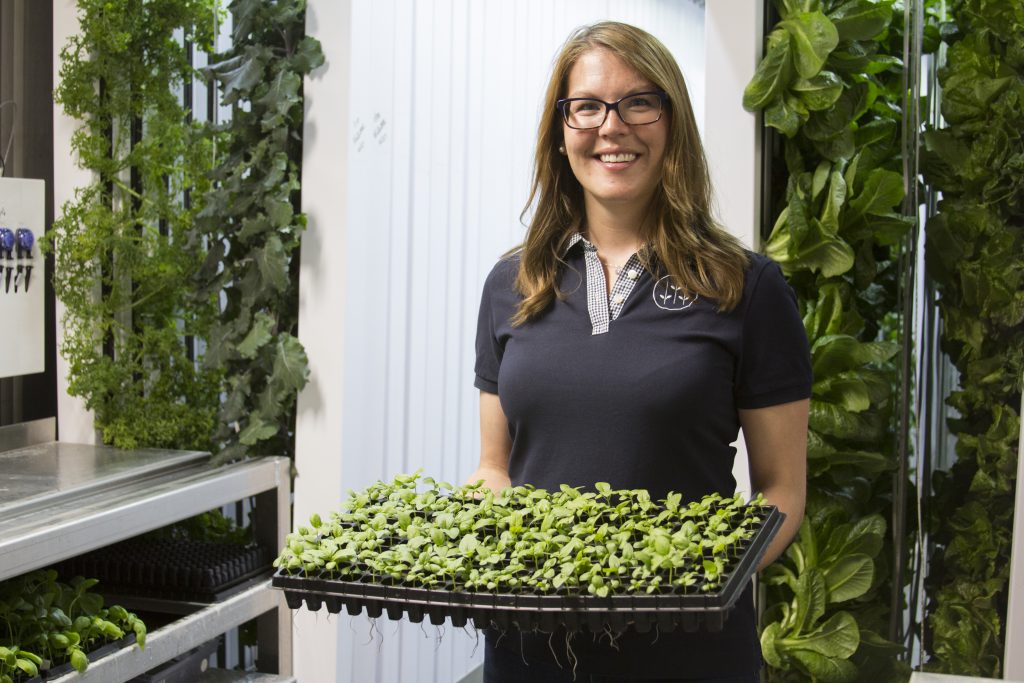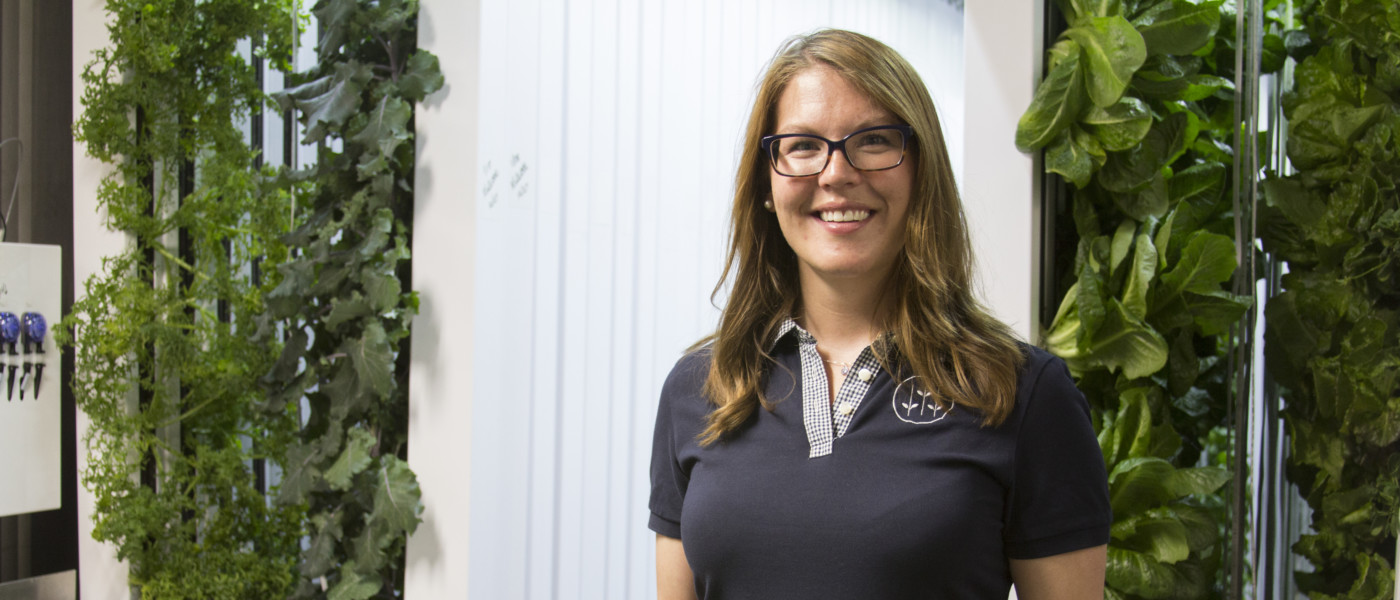Farm Aid partners with organizations all over the country to work towards our mission to create a family farm-centered system of agriculture in America. Since our first concert in 1985, we’ve granted over $24 million to more than 300 organizations, creating a strong network of allies to keep family farmers on the land. Each year, grantees report back on what they’ve accomplished.
This post features just a few stories from our grantees on how they are improving the way food gets from the farmer’s field (or shipping container, in one case – read on to understand that one) to our plates.
We’ve condensed and edited each statement for clarity, but the following are our grantees’ own stories in their words. We hope you’ll be as inspired as we are by the uplifting work to strengthen family farmers that’s happening all over our country.
Cultivate Kansas City
Cultivate Kansas City works to grow food, farms and community in support of a sustainable and healthy local food system for all. They believe that growing and sharing local food nurtures our ability to care for each other and the world in which we live. They shared the story of Michael Pearl, a farmer they’ve worked with.
Out on The Farm with Michael Pearl

After a successful career of more than 30 years in the marketing and advertising field, Michael Pearl has returned to his roots.
As the owner of MLP Farms in Platte County, Missouri, Michael is proud to be a 5th generation farmer. He grows vegetables and soybeans on his 88-acre farm, carrying on his family’s legacy on the land where he grew up.
His family history in the area began around 1835 when his great-great grandfather, Milton Paxton, started farming in Platte County after relocating to the area from Kentucky with his slave owner. (Milton later changed his name from Paxton to Pearl to abandon the name of his slave owner.)
Michael’s great grandfather, David Pearl, also a slave, purchased the current day MLP Farms land in 1892 after slaves were emancipated. Michael’s grandfather, Ollie Pearl, farmed the land and was known throughout the area for his custom combining operation. Michael’s father, Doug Pearl, was a grain farmer who grew wheat, soybeans and corn on the family land. He also raised cattle and hogs.
2018 will mark the family’s 125th year on the land. Farming may seem like Michael’s second career, but it really was his first because he grew up doing it. It was only natural that he would return to the soil someday.
“I’ve come full circle. It was just in my DNA” he said.
Growing up, Michael’s dad emphasized the importance of education. Michael attended the University of Kansas on a football scholarship and graduated with a degree in advertising. Then he was off to New York City where he launched a thriving career as an advertising executive in Manhattan. In the late 1990s, Michael became part of the team who launched Sprint PCS. Eventually, his work led him back to Kansas City and to his family’s land. Being back on the farm felt good, and soon he began to plant vegetables for his family and friends.
Before he knew it, his vegetable crops had blossomed into a business. He set up a roadside vegetable stand and eventually began selling at farmers markets including Parkville, Overland Park and the VA Hospital. He also started a wholesale business with area restaurants.

Michael Pearl
During the growing season, his fields are full of watermelons, spinach, radishes, sweet potatoes, squash and many other vegetables. He also has a 40-acre soybean field. Michael is glad to be an example for others who have the desire to farm, but aren’t sure if they have the financial capital or the background.
“You don’t have to have a million dollars, you just have to have desire,” he said.
When Michael needed support with equipment purchases, he applied for a Get Farming Mini Grant through Cultivate Kansas City. He received monetary support to purchase a tractor that helped expand his potato business. It enabled him to quadruple his growth, which meant more local food for area residents. Michael thrives on building his customer base through one-to-one interaction and forging relationships.
Currently he has four cleared plots of land on his acreage where he grows produce, and he wants to continue to expand. While he is seeing more farms pop up around the city, he thinks there is room for continued growth because local food is important.
“I like the creativity of farming, and the discipline, nurturing and solitude aspects of it as well,” Michael said. “It’s always teaching you something.”
Visit Cultivate Kansas City’s website for more information.
Western Organization of Resource Councils (WORC) Education Project
The WORC Education Project seeks to achieve a democratic, sustainable and just society through community action. It creates long-term social change by building a grassroots base of skilled citizens directly involved in working for stewardship and conservation of land, water and natural resources; economic and social justice for rural communities; the empowerment of local citizens to participate in civic life.
Elevated Harvest

Brittany Moreland of Elevated Harvest
Brittany Moreland and her husband Ben Sechler are members of WORC’s Northern Plains Resource Council. They run Elevated Harvest in Luther, Montana, and were featured in WORC’s Homegrown Stories campaign. Brittany grows mainly herbs, leafy greens, lettuce and kale – things that you could grow in rows on the ground – but she grows them vertically, hydroponically and indoors.
Brittany grows produce in a forty-foot shipping container converted by Freight Farms into an insulated hydroponics pod. Her production methods reflect the difficulties of growing in Luther, which is at 5,500-foot elevation and where the growing season is only about 100 days. The difficulties of producing leafy greens and vegetables in Brittany’s area has deterred other growers and created a niche market for her produce. Even with the city of Red Lodge and the town of Absarokee just a few miles up the road, the surrounding areas don’t have the population to support even her small scale of production. Brittany is looking to Billings as a more stable and developed market; but at 90 minutes away, Billings is just a little too far to make quick trips to drop off lettuce and herbs.
The Yellowstone Valley Food Hub, a local-foods project of Northern Plains Resource Council that opened in November 2018, is a wholesale option alleviates Brittany’s stress of getting to market. With the food hub, Brittany has the ability to drop off produce once or twice a week to their closer location. There, she knows it’s going to be kept fresh and someone else can focus on the logistics of marketing, selling and distributing it.
By acting as a center for several local farmers and ranchers, food hubs streamline the process of getting local food into customers’ hands, including larger institutions like restaurants and hospitals. Food hubs also use their connections within the community to market fresh, local products as well as keeping food until it’s convenient for the customer to come pick it up.
By allowing much more access to local food, changes in purchasing habits can ripple through a community. “When we get this food hub going, Billings will have an agricultural revolution,” Brittany told Homegrown Stories. “I think the food hub will create more farmers, more food for Billings and the Yellowstone Valley to eat locally. The food hub is an investment in our future.”
Follow Elevated Harvest on their Facebook page.
Visit WORC’s website for more information on their programs.



